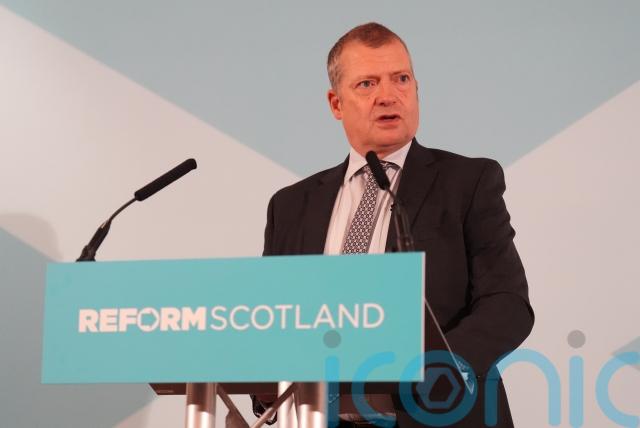
A Holyrood committee has raised concerns about whether the cost of recalling MSPs from Holyrood would be value for money.
Reform MSP Graham Simpson has put forward a Bill which, if passed, would allow for elected members at Holyrood to be removed from their post if they are jailed for six months – or barred from the Scottish Parliament building for 10 days or more.
The proposals are similar to legislation already in place in Westminster, which allows for MPs to be recalled.
But as it stands MSPs can only be removed from their job if they are given a jail sentence of more than 12 months.

Estimates, however, suggest it could cost more than £430,000 to recall a constituency MSP – with this rising to almost £2.75 million for regional list MSPs.
With members of Holyrood’s Standards, Procedures and Public Appointments Committee having scrutinised the proposals, they said they were “concerned about the costs associated with the Bill, particularly in relation to recall of regional members”.
The report from MSPs added: “The committee does not think that the Scottish public would consider expenditure of over £2.7 million – which could result in no change if a recalled MSP were to retain their role – as value for money.”
Meanwhile, committee convener Martin Whitfield said that “fundamental changes” are needed to the Scottish Parliament (Recall and Removal of Members) Bill.
Mr Simpson’s Bill is similar to legislation already in place at Westminster where a recall petition can be initiated if an MP is sent to prison or suspended for 10 sitting days – potentially forcing a by-election in their seat.
For a recall petition to be effective against a constituency MSP, 10% of the people in the area must back it
But for regional MSPs, 10% of people across the region would need to sign the recall petition, including at least 10% of people in three separate constituencies across the region.
As a result, the committee said, a regional MSP “could face a higher bar to retaining their seat relative to a constituency MSP contesting a by-election”.
Mr Simpson has been urged to consider if this should be changed, with the committee suggesting he “focus on the question of the complexity and costs associated with any mechanism for recall of regional members”.
The report follows the committee’s consideration of the Scottish Parliament (Recall and Removal of Members) Bill.
The Bill, introduced by Mr Simpson, would bring in a process by which an MSP could lose their seat in the Parliament through a recall petition.
While the committee recommends the Scottish Parliament agrees the general principles of the Bill, the report sets out a number of areas for reconsideration to ensure the process works within the Scottish Parliament’s electoral system.
These include consideration of the complexity and costs associated with the recall of regional MSPs, and some of the practical arrangements of holding recall petitions to ensure all those eligible to sign can do so.
The Bill also proposes new grounds for the automatic removal of MSPs, either on criminal offence grounds or when a member has not attended Parliament in person for 180 days without a reasonable explanation.

The committee is not persuaded that MSPs should be removed for not physically attending the Parliament and invites Mr Simpson to reconsider this element of the Bill.
While Mr Whitfield said the Bill has the “aim of improving accountability” he added there “are some fundamental changes which need to be made for the Bill to achieve this aim”.
The convener added: “The recall process suggested within the Bill builds on the now well-established process at Westminster.
“But as we heard time and again, the two electoral systems are not the same and it is clear to us that there needs to be further thought given to how regional recall will work.”
With the Bill also proposing MSPs could face removal proceedings if they fail to attend at Holyrood for at least one day out of 180, Mr Whitfield added the legislation failed to take into account that Holyrood operated as a hybrid parliament, with members able to take part in committee meetings and debates remotely.
He said: “With this in mind, we are simply not persuaded that requiring physical attendance is the correct basis for removal of MSPs and this must be rectified during any further consideration of the Bill.”
Mr Simpson welcomed, however, that the committee backed the general principles of his Bill – which he said was “about restoring trust in politics”.
Speaking about the proposed legislation, the Reform MSP added: “It’s about ensuring that MSPs are held to the highest standards and that the public has a meaningful say when those standards are breached.
“I’m pleased that the committee has endorsed the general principles of the Bill and recognised the importance of improving accountability in our Parliament.”
Subscribe or register today to discover more from DonegalLive.ie
Buy the e-paper of the Donegal Democrat, Donegal People's Press, Donegal Post and Inish Times here for instant access to Donegal's premier news titles.
Keep up with the latest news from Donegal with our daily newsletter featuring the most important stories of the day delivered to your inbox every evening at 5pm.